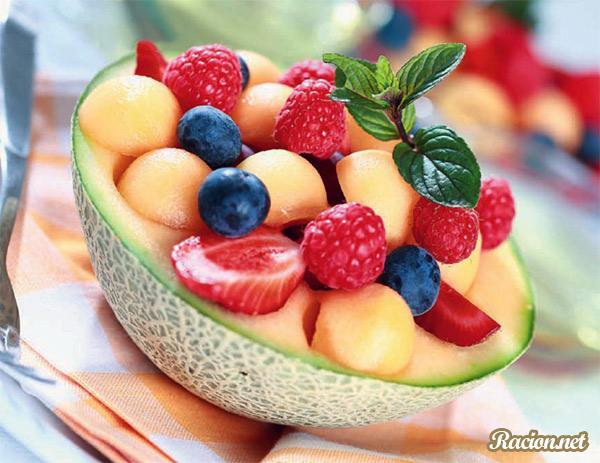673
FOR PERFORMANCE AND MEMORY.

What is? Seafood, nuts and seeds, whole wheat bread, whole grains, liver, yeast.
Why? These products contains B vitamins They are responsible for energy production. Improve memory, reduce aggression, reduce pain neurological (eg, migraine).
BEAR IN MIND. B vitamins are working at full capacity, only when enter the body together. The principle of obtaining the maximum of vitamins from the food simple - minimal heat treatment.
Seafood and sea algae contain iodine, necessary for normal thyroid function. Due to lack of iodine is reduced production of thyroid hormones, it leads to lethargy, edema, inhibition of all metabolic processes in the body, obesity, poor memory.
How often are there? At least 2 - 3 times per week.
TO VIEW
What is? Blueberries, fresh grated carrots with sour cream.
Why? One large carrots (100 g) provides the body with a two-day rate of carotene, which is converted into vitamin A, and forms the visual pigments necessary to the retina.
BEAR IN MIND. Fresh grated carrots with sour cream contains a complex of vitamins and minerals that strengthens your nails and gives hair shine.
How often are there? 3 - 4 times a week.
For young
What is? Crude sunflower oil, rice and oat bran, nuts.
Why? These products contain vitamin E, which slows the aging process in the body.
BEAR IN MIND. Choose as a face cream, which is composed of vitamin E.
How often are there? Daily.
FOR LONGEVITY
What is? Oily fish, olive and crude sunflower oil, walnuts.
Why? These products contain omega-fats, which lower blood cholesterol levels, and with it the likelihood of blood clots and preventing heart attacks.
BEAR IN MIND. In fish in sushi useful acids are stored in full, but in the crab sticks of their remains in a minimum amount as during the manufacturing process fish exposed to severe treatment. The most useful is salmon, trout, their abdomens fat, herring, mackerel.
How often are there? Every day, at least 50 - 100 grams.
Hair and skin
What is? Cheese, meat offal - Liver, kidneys, brains, egg yolks.
Why? Contain biotin - it responds for the exchange of fatty acids, supports the growth of hair and nails, hair loss slows down with age.
BEAR IN MIND. Biotin produce bifidobacteria in the intestine. The risk of developing deficiency of biotin is, in people taking antibiotics.
How often are there? It is desirable every day for one serving.
For immunity and heart
What is? Fresh carrots, pumpkin dishes, tomatoes, pink grapefruit, green leafy vegetables, citrus fruits.
Why? In the leafy vegetables and spinach contains carotenoids lutein and zeaxanthin, in tomatoes and pink grapefruit also has the carotenoid lycopene. And all the carotenoids, "the team" have a positive effect on the cardiovascular system and improve immunity.
BEAR IN MIND. Vegetables can be replaced by fresh juices. Instead of canned vegetables, fruits and berries, choose frozen.
How often are there? It is desirable that at least one of the products present in the diet of 2 - 3 times a day.
FOR eliminate toxins
What is? Bran and foods containing bran, cabbage, dried apricots.
Why? They - cellulose.
BEAR IN MIND. Bran can be added to dairy products, salads, soups.
How often are there? Cellulose must be ingested daily. You can alternate bran - cabbage, dried apricots.
FOR vivacity
What is? Citrus fruits, broccoli, bell pepper, currants, rose hips.
Why? These products - a storehouse of vitamin C.
BEAR IN MIND. Assistants of vitamin C - a substance bioflavonoids. They are found in green tea, red wine, apples, onions, tomatoes and broccoli. Ideal - combine foods with vitamin C with foods rich in bioflavonoids.
How often are there? Half a cup of fresh orange juice - daily required dose of vitamin C. You can replace or supplement the kiwi juice (every day 2 things).
Vitamin C is excreted from the body within days, so its supply the organism should be constant.
























